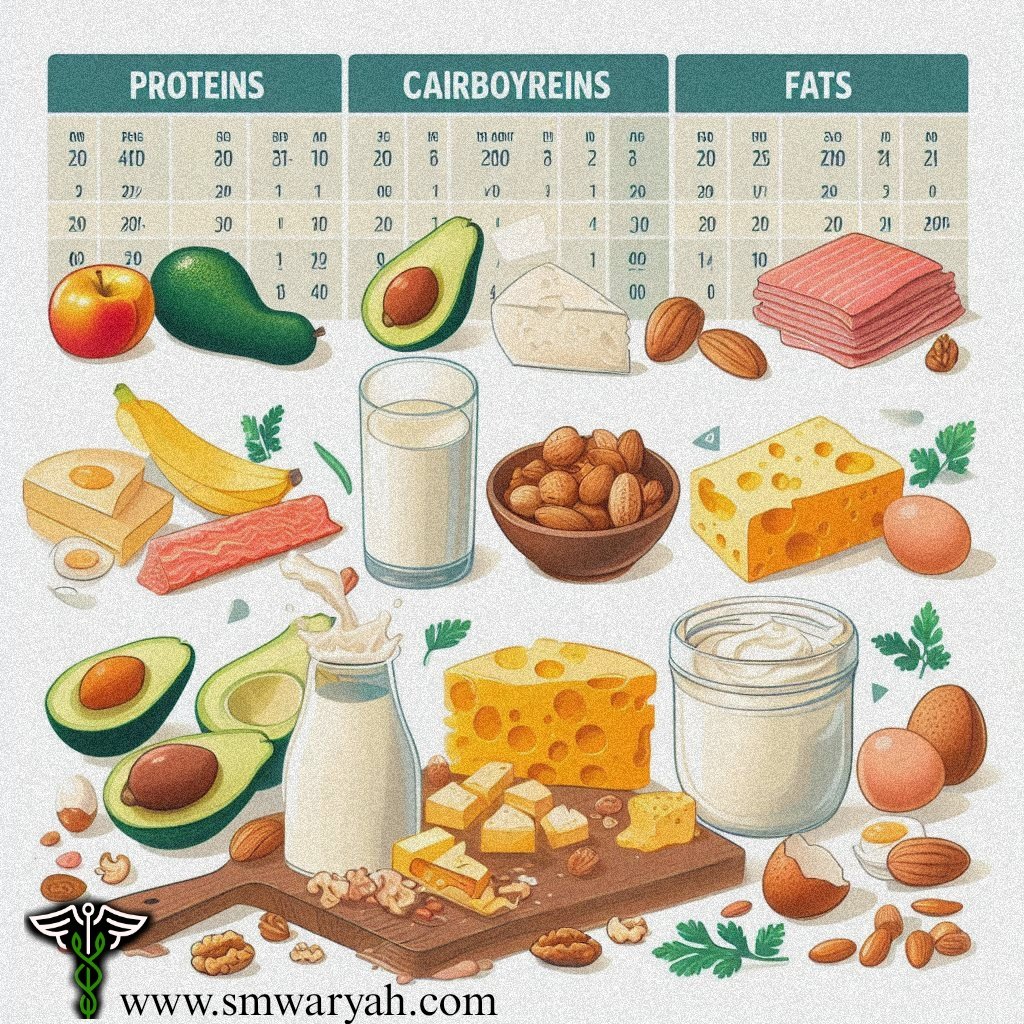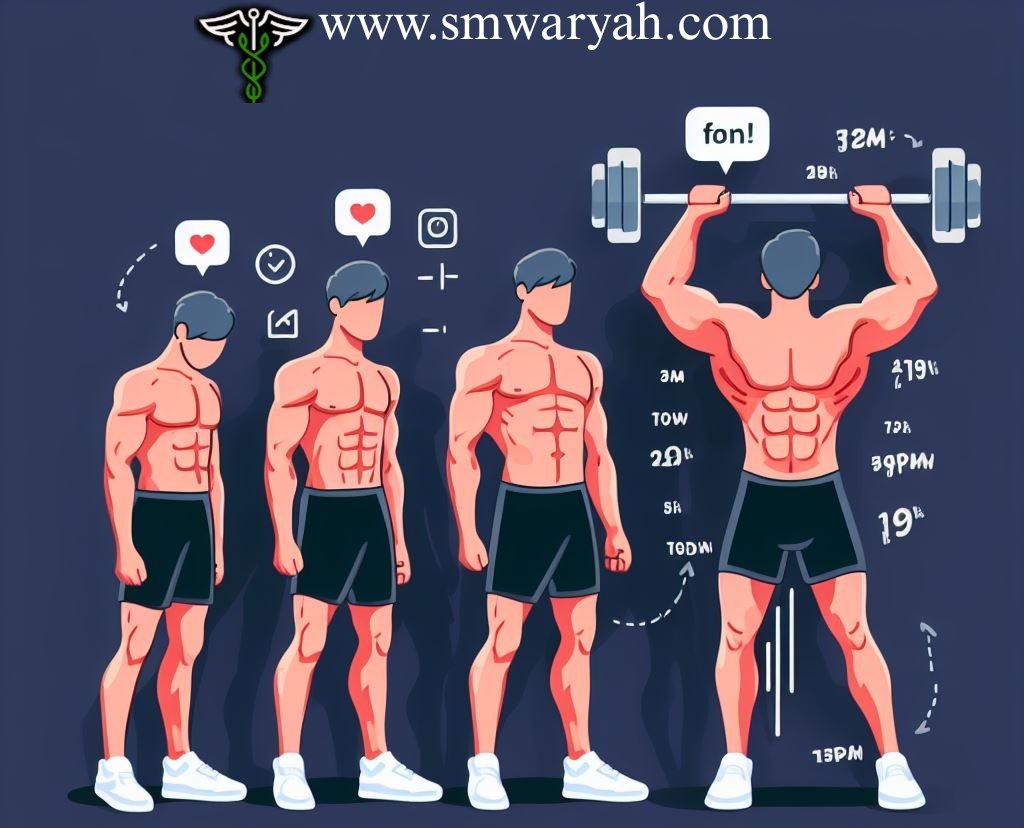Title: Healthy Weight Gain: Tips and Strategies for Building a Stronger You
INTRODUCTION
While many focus on losing weight, there are individuals whose primary goal is to gain weight and build a healthier, stronger body. Healthy weight gain is not about indulging in unhealthy foods or simply packing on pounds—it’s about nourishing your body to promote muscle growth, enhance vitality, and support overall well-being. In this comprehensive guide, we will delve into the principles of healthy weight gain, providing valuable tips and strategies to help you achieve your goals while maintaining your health.

I. Understanding Healthy Weight Gain
- The Importance of Healthy Weight Gain: Explore the reasons why some individuals need to gain weight and how it can benefit their health and quality of life.
- Setting Realistic Goals: Learn how to establish achievable weight gain goals and why setting realistic expectations is essential.
- The Role of Calories: Understand the basics of calorie intake and expenditure in the context of healthy weight gain.
II. Building a Balanced Diet for Weight Gain
- Quality vs. Quantity: Discover why the quality of your calorie intake matters more than sheer quantity and how to make nutrient-dense choices.
- Macronutrients for Muscle Growth: Explore the significance of carbohydrates, proteins, and fats in supporting muscle development and overall health.
- The Power of Protein: Dive into the importance of protein in muscle building, along with sources and recommended intake.
- Carbohydrates: Your Energy Source: Learn how carbohydrates provide energy for workouts and recovery.
- Healthy Fats: Essential for Hormone Balance Understand how dietary fats influence hormone production and why they are crucial for healthy weight gain.
III. Meal Planning and Timing
- Balancing Meals: Discover the art of creating balanced meals that provide a steady supply of nutrients and energy throughout the day.
- Snacking with Purpose: Learn how strategic snacking can help you meet your calorie goals and provide additional nutrients.
- Post-Workout Nutrition: Understand the importance of refueling after exercise and the role of protein in muscle recovery.

IV. Building Muscle with Resistance Training
- The Role of Exercise: Explore how resistance training and exercise support muscle growth and overall weight gain.
- Designing a Weight Gain Workout Routine: Learn how to create a workout plan that aligns with your goals, including exercises, sets, and reps.
V. Staying Hydrated and Managing Stress
- Hydration Matters: Understand why proper hydration is essential for overall health and how it impacts your weight-gain journey.
- Managing Stress: Explore the connection between stress, weight gain, and strategies to reduce stressors in your life.
VI. Tracking Progress and Making Adjustments
- Monitoring Weight Gain: Learn how to track your progress effectively and when and how to make adjustments to your plan.
- Seeking Professional Guidance: Discover when it’s appropriate to consult with a healthcare provider or registered dietitian for personalized support.
VII. Healthy Weight Gain Recipes
- Protein-Packed Breakfast Ideas: Explore delicious breakfast recipes that provide essential nutrients and protein to kickstart your day.
- Nutrient-Rich Smoothies: Learn how to make nutrient-dense smoothies that support your weight-gain goals.
- High-Calorie Snacks: Discover wholesome and satisfying snack recipes that boost your daily calorie intake.

VIII. Success Stories: Real People, Real Results
- Inspiring Transformation Stories: Read about individuals who successfully healthily gained weight, sharing their experiences and tips.
IX. Balancing Weight Gain and Health
- Maintaining Overall Health: Understand the importance of keeping an eye on other health markers, such as cholesterol levels and blood pressure, while pursuing weight gain.
X. Conclusion: Your Path to a Stronger You
In closing, remember that healthy weight gain is a journey that requires patience, dedication, and a commitment to nourishing your body in the right way. By following these tips and strategies, you can build a stronger, healthier you without compromising your overall well-being. Embrace the process, celebrate your progress, and revel in the newfound vitality and strength that come with achieving your weight-gain goals the healthy way.
Decoding Weight Loss: Effective Strategies for Slimming Down
INTRODUCTION
In a world filled with fad diets, miracle weight loss pills, and a constant barrage of conflicting advice, it’s essential to turn to science for guidance when it comes to shedding unwanted pounds. Effective weight loss isn’t about quick fixes or deprivation; it’s about understanding the fundamental principles of how our bodies store and burn energy. In this article, we will delve into the science of slimming down, exploring evidence-based strategies that can help you achieve your weight loss goals healthily and sustainably.
I: The Energy Balance Equation
At the core of weight loss is the simple yet powerful concept of energy balance. It’s the relationship between the calories you consume through food and beverages and the calories your body burns through various activities and processes.
- Caloric Intake: To lose weight, you need to create a caloric deficit, meaning you consume fewer calories than your body expends. This compels your body to access stored fat reserves as an energy source, aiding in weight loss.
- Basal metabolic rate (BMR): BMR is the number of calories your body needs to perform basic functions like breathing and maintaining body temperature. It accounts for a significant portion of your daily energy expenditure.
- Physical Activity: Exercise and daily activities contribute to the calories you burn. Combining regular physical activity with dietary changes is a potent strategy for weight loss.

II. The Role of Nutrition
- Balanced Diet: A balanced diet rich in whole foods provides essential nutrients while supporting weight loss.
- Give prominence to fruits, vegetables, lean proteins, whole grains, and wholesome fats for optimal nutrition and well-being.
- Portion Mastery: Stay mindful of serving sizes to prevent overindulgence; adopting smaller, frequent meals can effectively manage appetite and caloric consumption.
- Mindful Eating: Practicing mindful eating techniques, such as eating slowly and savoring each bite, can help you become more aware of hunger and fullness cues.
III. Understanding Macronutrients
- Protein: Protein is crucial for weight loss as it helps preserve lean muscle mass while promoting feelings of fullness. Include sources like lean meats, poultry, fish, legumes, and dairy in your diet.
- Carbohydrates: Choose complex carbohydrates like whole grains, fruits, and vegetables over refined sugars and processed foods. These provide sustained energy and fiber.
- Fats: Healthy fats, such as those found in avocados, nuts, seeds, and olive oil, are an important part of a balanced diet. They offer a sense of fullness while bolstering overall well-being.
IV. Exercise and Weight Loss
- Cardiovascular Exercise: Activities like jogging, cycling, and swimming burn calories and improve cardiovascular health. Strive for a minimum of 150 minutes per week of moderate-intensity aerobic activity to promote your health and fitness.
- Strength Training: Resistance exercises, like weight lifting, build muscle, which burns more calories at rest. Include strength training in your fitness routine.

V. Metabolism and Weight Loss
- Metabolic Rate: Metabolism varies from person to person. Factors like age, gender, genetics, and muscle mass influence your metabolic rate. It’s essential to focus on what you can control, such as diet and exercise.
- Starvation Mode Myth: Contrary to popular belief, skipping meals or drastically reducing calories can slow down your metabolism. Sustainable weight loss involves gradual, consistent changes.
VI. Hydration and Weight Loss
- Water’s Role: Staying hydrated is crucial for overall health and can support weight loss by promoting feelings of fullness and optimizing metabolic processes.
- Hydrating Foods: Foods with high water content, like fruits and vegetables, can help you stay hydrated while consuming fewer calories.
VII. Sleep and Stress Management
- Sleep Quality: Poor sleep can disrupt hunger and appetite hormones, leading to weight gain. Target 7-9 hours of restorative, high-quality sleep per night for optimal well-being. t.
- Stress Reduction: Chronic stress can lead to overeating and weight gain.
- Integrate meditation and exercise for effective stress management.

VIII. Setting Realistic Goals and Tracking Progress
- SMART Goals: Set Specific, Measurable, Achievable, Relevant, and Time-bound (SMART) goals for your weight loss journey.
- Tracking Progress: Keep a food diary, use fitness apps, or consult with a healthcare professional to monitor your progress and make necessary adjustments.
IX. Seeking Professional Guidance
- Registered dietitians: Consider working with a registered dietitian who can provide personalized guidance and meal planning.
- Physicians: If you have underlying health conditions or concerns about your weight loss journey, consult with a healthcare provider for a comprehensive evaluation.
X. Conclusion: The Science of Sustainable Weight Loss
Effective weight loss isn’t about shortcuts or drastic measures; it’s about understanding the science behind how our bodies manage energy. By creating a caloric deficit through balanced nutrition and regular exercise, you can achieve your weight-loss goals while maintaining your health and well-being. Bear in mind that lasting weight loss demands time, patience, and unwavering consistency. Embrace the science of slimming down, make evidence-based choices, and embark on a journey to a healthier, happier you.

